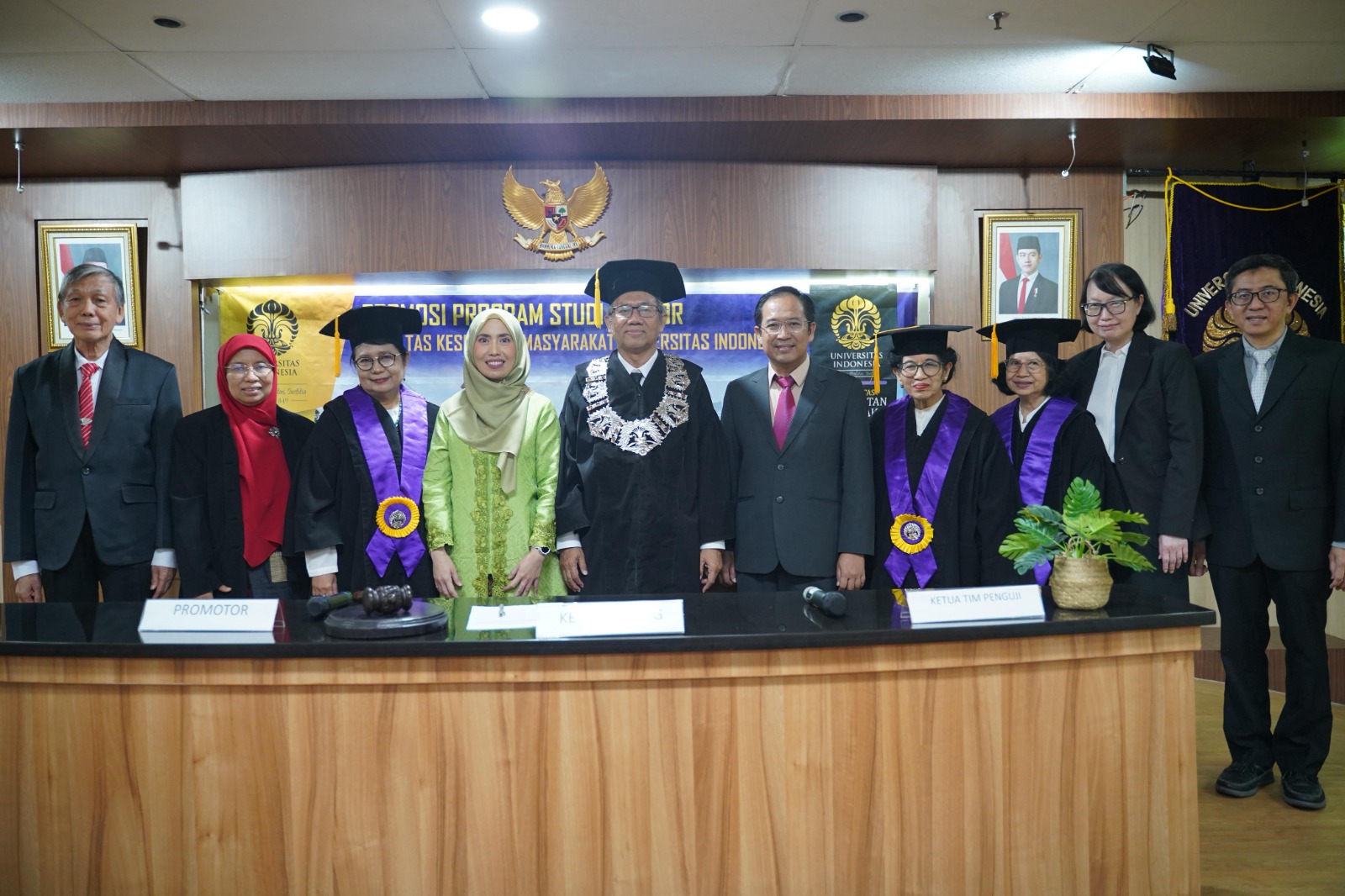The Faculty of Public Health (FPH) Universitas Indonesia (UI) has once again conferred a doctoral degree through the Doctoral Program in Epidemiology, Clinical Epidemiology concentration. On Monday, June 23, 2025, Wahyuningsih Djaali successfully defended her dissertation titled “Prediction of Pain Reduction in Musculoskeletal Pain Patients Undergoing Acupuncture Therapy.”
The open doctoral defense was chaired by Prof. Dr. Mondastri Korib Sudaryo, M.S., D.Sc., with Prof. Dr. Asri C. Adisasmita, M.P.H., M.Phil., Ph.D. serving as the main supervisor, and Dr. dr. Helda, M.Kes., and Dr. dr. Hasan Mihardja, M.Kes, Sp.Ak(K) as co-supervisors. The examination committee consisted of Prof. Dr. Ratna Djuwita Hatma, M.P.H.; Prof. Dr. Ella N. Hadi, M.Kes.; Dr. Rudy Hidayat, Sp.PD-KR, FINASIM; Dr. Aida Rosita Tantri, Sp.An-KAR; and Dr. Gea Pandhita S., M.Kes., Sp.N.
Wahyuningsih explained that musculoskeletal pain is among the most common complaints encountered in acupuncture services, including at Cipto Mangunkusumo National General Hospital (RSCM). “However, to date, no instrument exists to predict the success of acupuncture therapy for musculoskeletal pain based on demographic characteristics, clinical conditions, and specific therapy details,” she noted. Her study aimed to develop a predictive model to assist clinicians in determining prognosis and management strategies for musculoskeletal pain using acupuncture therapy.
The study adopted an Embedded Design Mixed Method approach, combining quantitative data from medical records of acupuncture patients at RSCM (2021–2024) with qualitative data from in-depth interviews involving seven informants. The factors analyzed included age, gender, physical activity, smoking history, obesity, and therapy specifics such as the number of sessions and acupuncture points used.
Wahyuningsih’s findings revealed that significant pain reduction (at least 50% from baseline) was achieved in 76.85% of patients, with success rates increasing to 91.76% among those who completed more than six sessions. The study also identified several significant factors influencing therapy success, including age, physical activity, pain location, and previous analgesic use. The scoring model derived from these findings proved to be an effective clinical tool for predicting acupuncture therapy outcomes.
Her dissertation highlights the vast potential of acupuncture as an effective and measurable non-pharmacological treatment modality. Wahyuningsih emphasized that her research could serve as a foundation for supporting the inclusion of acupuncture in Indonesia’s National Health Insurance (JKN) scheme managed by BPJS Kesehatan.
“In addition to providing direct benefits to patients, these findings also educate the public on the importance of maintaining a healthy lifestyle—such as quitting smoking, managing body weight, and staying physically active—to enhance the effectiveness of pain therapy,” she concluded.
Wahyuningsih’s achievement further strengthens FPH UI’s contribution to evidence-based clinical epidemiology with practical impacts on healthcare services in Indonesia.
She graduated with honors (cum laude), becoming the 11th doctoral graduate of the Epidemiology Doctoral Program in 2025, the 126th graduate of the program overall, and the 459th doctoral graduate from FPH UI. (promovendus/wrk)

